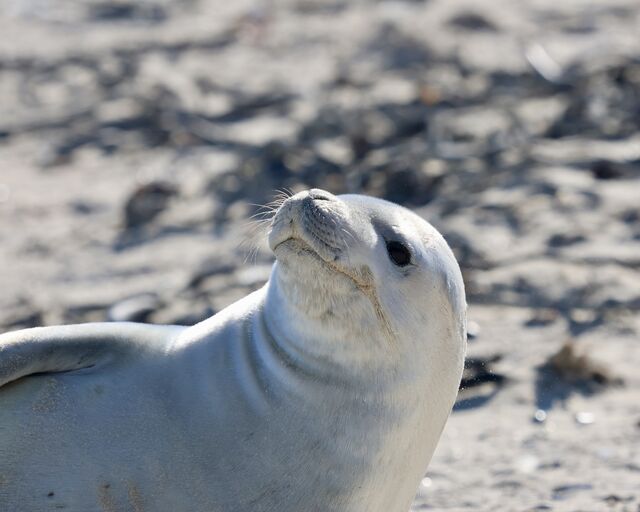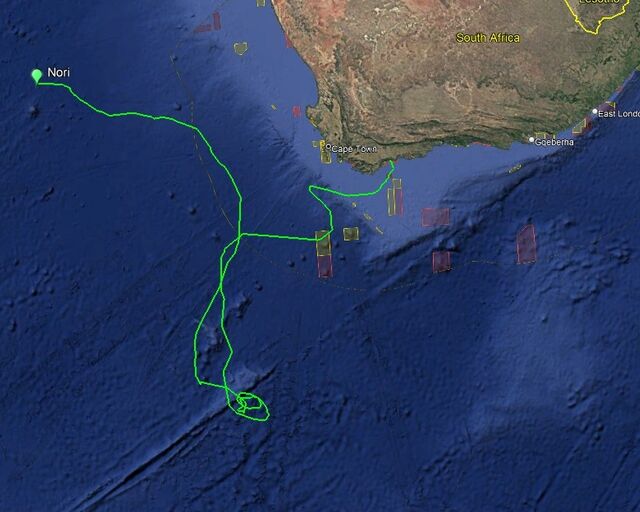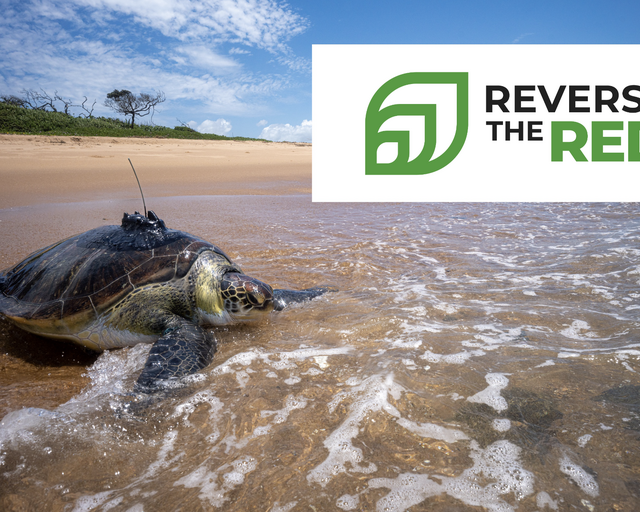The 18th Southern African Marine Sciences Symposium (SAMSS) took place in Cape Town from 8 - 12 September 2025, bringing together around 500 scientists, policymakers, educators, practitioners, and community leaders from over 50 institutions. This year’s theme, “The triple planetary crisis – resilience and conservation of ocean and coastal ecosystems”, set the stage for urgent conversations about biodiversity loss, pollution, and climate change.
The event, hosted by the Department of Conservation and Marine Sciences at the Cape Peninsula University of Technology (CPUT) under the umbrella of the South African Network for Coastal and Oceanic Research, was supported by the National Research Fund and the Department of Science and Technology. Notably, all of the Western Cape’s Higher Education institutions were represented.
Among the speakers were the Two Oceans Aquarium Foundation’s own Dr Nathalie Viljoen, Whitney Samuels-Hoffmeister, and Calley Chateau-Cyster, while Martine Viljoen and Jaide McKriel represented the team as participants.
Sharing our work with the marine science community
Education and long-term impact
Dr Nathalie Viljoen, Head of Research, presented “Beyond the Aquarium: A long-term look at the effect of the Young Biologist course of the Two Oceans Aquarium”. Since its inception in 2001, this flagship programme has reached more than 1 000 high school learners, inspiring future studies and careers in marine sciences, conservation, and environmental stewardship.
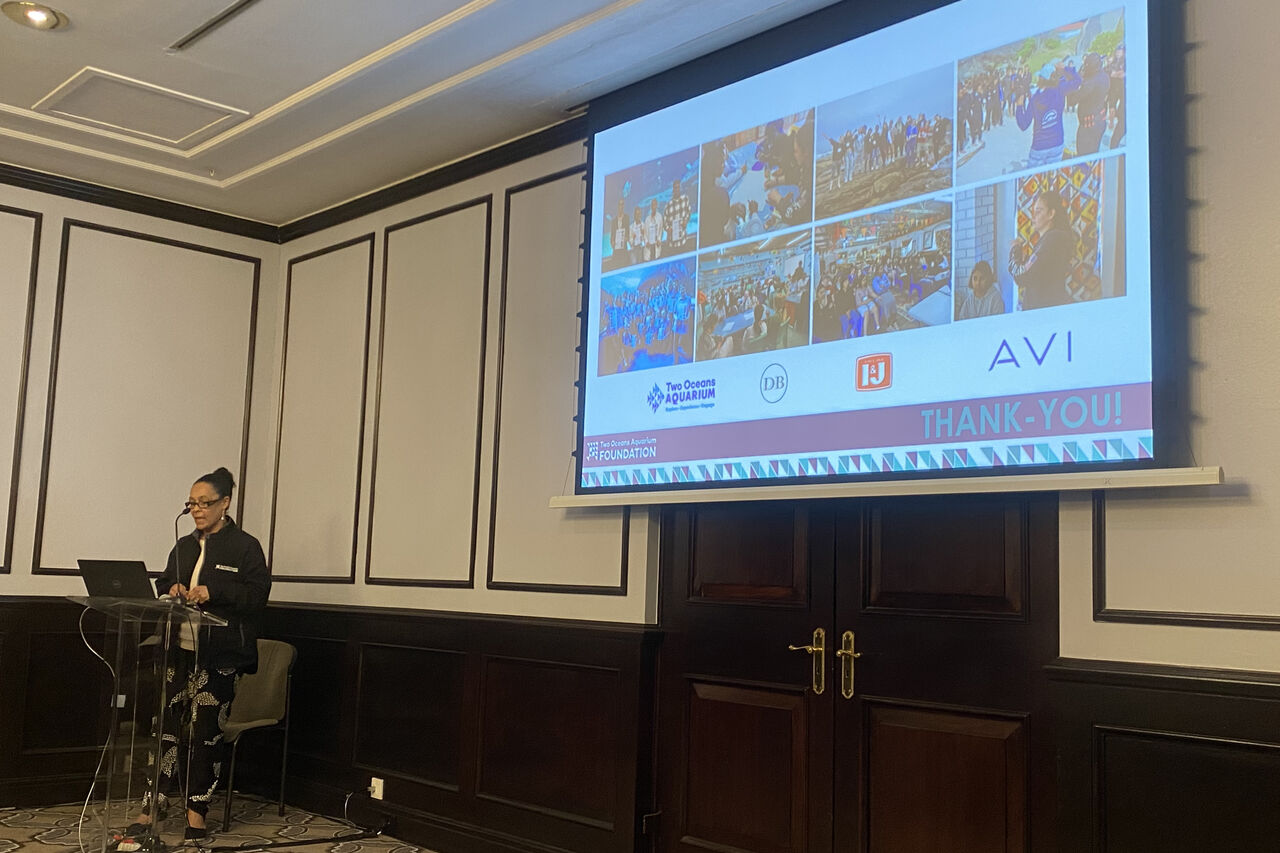
“My talk focused on the key findings from over 100 responses to our 15-question survey. The results highlight the course’s enduring influence on participants’ personal growth, educational pathways, and professional aspirations,” says Nathalie.
In fact, the Foundation's SAMSS team were especially proud to meet alumni of the Young Biologist course who are now established researchers and conservationists – living proof of the ripple effect of our education programmes.
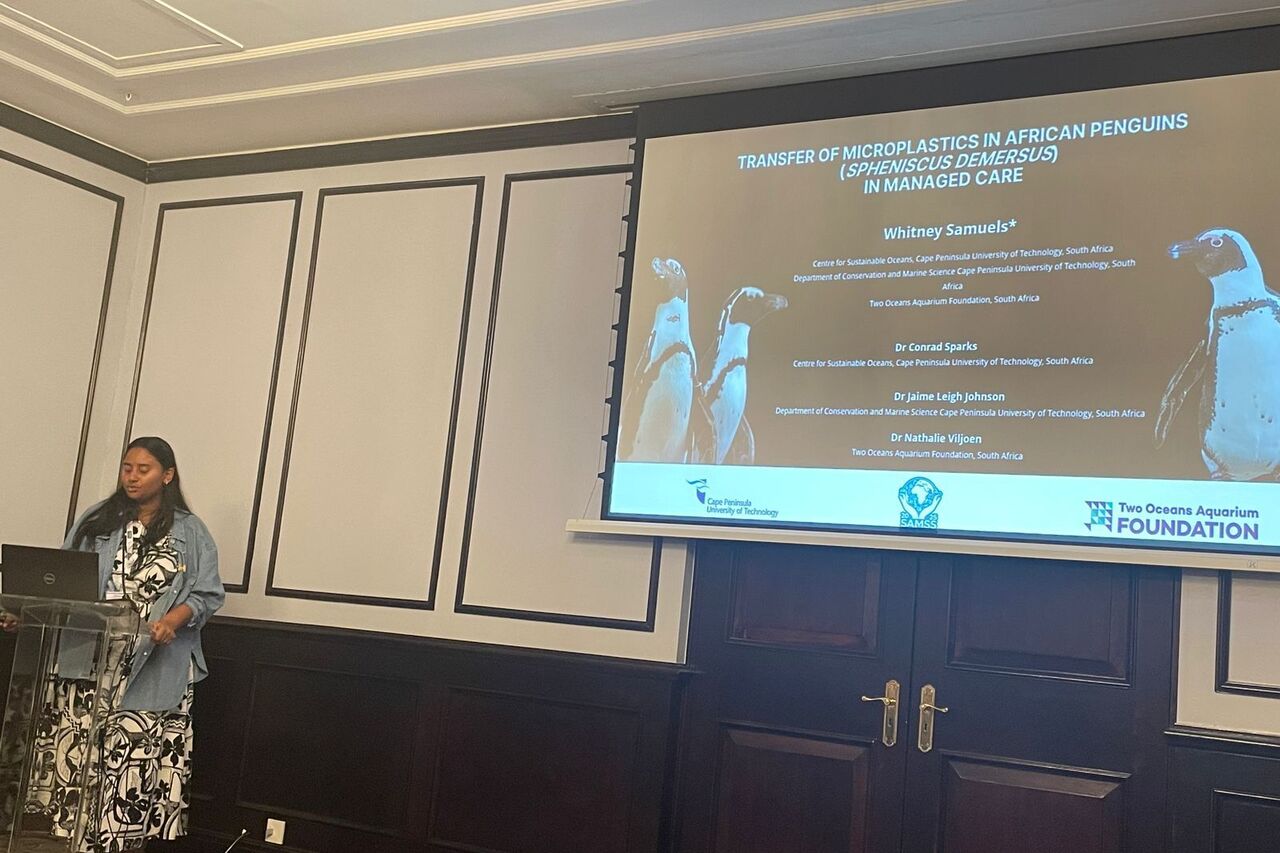
Penguins and microplastics
Ocean Campus Teacher and PhD candidate, Whitney Samuels-Hoffmeister, shared her research into microplastic transfer among African penguins in managed care. Her findings shed light on microplastic pathways in controlled environments and their implications for vulnerable marine species.
“Presenting at SAMSS was an exciting opportunity to connect with fellow marine scientists, exchange ideas, and gain valuable insights that will guide and strengthen the future direction of my work,” says Whitney.
Tracking turtles for conservation
Research Assistant, Calley Chateau-Cyster, showcased the increasingly science-led work of the Turtle Conservation Centre (TCC). Using satellite and acoustic tracking, the team is able to monitor turtle movements post-release and identify safe release sites. Another key theme Calley explored was the vital ecological role turtles play in maintaining healthy ocean ecosystems, and why their protection is so crucial for the balance of marine life.
“Looking back at 30 years of impact, it was inspiring to see how far the TCC has come, and exciting to look forward to the future, where continued research and conservation efforts will ensure that more turtles are given a second chance at life in our oceans,” says Calley.
Empowering the next generation
One of the most exciting aspects of SAMSS is its commitment to empowering the younger generation. SAMSS is a golden opportunity for graduate marine scientists, conservation students, and early-career professionals to network and gain insight into the field. This year was no different.
“A major focus was on equipping future scientists and decision-makers with technology, data, and skills to meet the challenges ahead,” says Nathalie.
This is an area especially close to our hearts at the Two Oceans Aquarium Foundation. Through our collaboration with CPUT’s third-year Marine Sciences students in the Work Integrated Learning (WIL) programme, students gain invaluable hands-on experience in fields such as marine wildlife welfare, turtle conservation, and biological research. We also supervise postgraduate students from South Africa and abroad, many of whom go on to pursue advanced degrees at universities worldwide.
The conference also provided both speakers and attendees with the valuable opportunity for networking beyond the lecture halls and between sessions. "These human connections often prove to be just as impactful as the science shared from the stage during sessions by sparking new ideas, reinforcing existing partnerships, and laying a foundation for future collaborations," says Martine Viljoen, Marine Wildlife Management Programme Manager and SAMSS attendee.
Key takeaways
The symposium covered eight broad themes, from biodiversity and ecosystem studies to oceanography, atmospheric science, and sustainable engineering. It also created space for essential conversations around science communication, citizen science, community engagement, indigenous knowledge, and the blue economy.
Nathalie summed up her most powerful takeaways from SAMSS 2025 as follows: "There is an urgent need for transdisciplinary projects that blend scientific research with indigenous knowledge and community engagement. It is essential to find new and innovative ways to communicate science to broader audiences. Finally, the body of evidence on the impacts of climate change and plastic pollution on species and ecosystems is growing."
SAMSS reminded Calley that research can no longer be conducted purely for its own sake. "Our work needs to be solutions-focused and people-centred. We must constantly ask ourselves: Who will benefit from this research, who might be left out, and is our work genuinely contributing to real-world solutions? Shifting our focus in this way ensures that science has a meaningful impact beyond the pages of journals," she said.
Martine agreed that several speakers stood out, not only for presenting their data effectively, but for acting as a powerful reminder that impactful conservation is about more than data. "It is about connecting science to action - conservation depends on more than technical expertise," she said.
Overall, our Foundation representatives found SAMSS 2025 to be a valuable space for knowledge-sharing and learning.
“By combining indigenous knowledge, research, innovation, and community engagement, SAMSS 2025 made meaningful strides towards strengthening climate resilience and supporting sustainable development in southern Africa’s ocean and coastal spaces,” concludes Nathalie.
Related News
Sign up to our Newsletter
Receive monthly news, online courses and conservation programmes.
